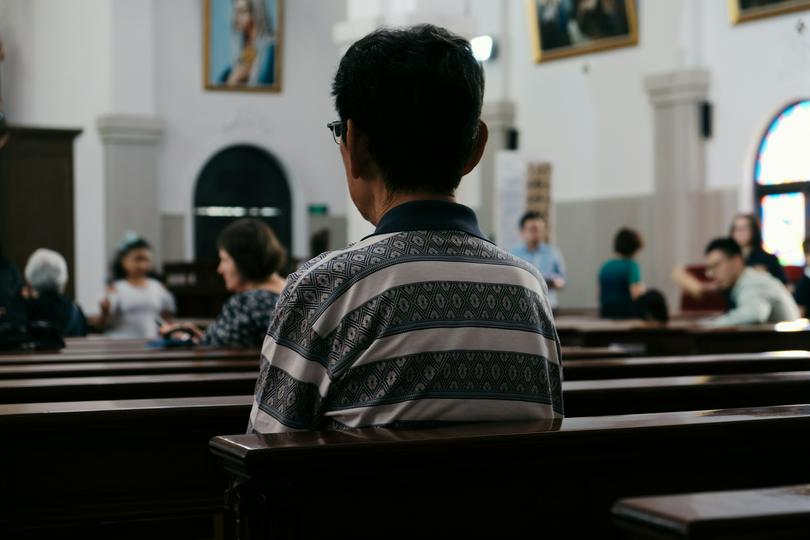My uncle grew up in an orphanage and later attended university. During the Sent-Down Youth Movement, he was assigned to teach at the primary school in our village. My aunt, who was about the same age and had completed her primary education, met him there. They fell in love and eventually married.
My aunt became a Christian at a young age, when believers had to travel long distances to attend church services in other villages. Although my uncle was not a believer then, he always respected her faith. Later, he was promoted to vice principal of the town's high school, and the family moved to town. My aunt joined the local church, where her fervent faith and literacy quickly led her to be the church's accountant and a core co-worker. On weekends, my uncle stayed home to look after the children, never complaining about his wife's unpaid service at the church, and willingly took on household chores. Before every meal, my aunt would lead a prayer while my uncle stood quietly beside her—a quiet expression of his love for his family and for her.
Gentle and mild-mannered, my uncle seldom lost his temper even in his position as vice principal. He always spoke kindly and with perfect Mandarin. My mother has always held great respect for him and still calls him "Teacher Zhang."
My uncle's conversion to Christianity came naturally. After retiring, he began attending church with my aunt and soon became a core member of the congregation. Skilled in musical notation and piano, he also led the choir in hymns. Leveraging his musical talents, he served not only the town's church but was frequently invited to train choirs in neighboring counties, becoming an indispensable figure in many revival meetings. For over thirty years, he has served tirelessly, remaining committed even into his eighties.
As a retired high school principal, he was cultured, musically knowledgeable, possessed leadership abilities, and enjoyed respect and prestige. After becoming a key member of the church's sacred music team, he naturally assumed a leadership role within the town church. However, he often deferred formal leadership positions to younger members, willingly serving as a humble envoy of the church.
Around 1995, a new church leader emerged who held that women should cover their heads during listening to sermons and should not partake in Holy Communion. Although he was neither a pastor nor ordained, he was trusted by some congregants to serve as a preacher. Some unaware believers supported him, while others, including my uncle, opposed his teachings, with my uncle quickly emerging as a key leader of the dissenting group.
The disagreement escalated to the point of potential physical confrontation, with some threatening my uncle. Throughout, he remained calm and reasoned with them. Eventually, on behalf of the concerned believers, he approached the county church for guidance. The county church responded promptly, correcting the doctrinal deviation, and the individual and his supporters gradually left the congregation.
As the number of believers grew, the church's original three single-story buildings could no longer accommodate the congregation. Several years ago, the church called on members to make dedicated donations; however, most rural believers were elderly and had limited means. At this time, my uncle once again stepped forward, leveraging the connections he had cultivated over decades of teaching to raise funds from former students and to coordinate land acquisition and building permits. After several years of effort, the necessary approvals and the funds were secured. While modest, they were sufficient to double the size of the original church.
During the church's demolition, I visited my aunt during the weekend and saw her and my uncle working in the churchyard. To save costs, the heavier demolition work was carried out by younger believers, while my uncle, though over sixty, assisted at ground level. A former school principal, he now willingly labored as a humble builder for the church. Yet he was content. Looking back, his actions vividly demonstrate the power of faith. Though the stage may have changed, his dedication remained steadfast.
My uncle is now over ninety years old, yet he remains energetic and continues to hum hymns to himself every day. Though he is no longer able to travel to distant churches for training, he still participates in revival meetings at the local church. Eventually, a larger two-story church was constructed in the town, which I firmly believe reflects God's grace working through my uncle.
After his retirement, the church provided my uncle with a new platform, making his life more meaningful and filled with grace. His life stands as a testament to the power of faith—demonstrating that, regardless of one's position, anyone can serve as a vessel of God's grace.
Originally published by the Christian Times
- Edited and translated by Poppy Chan












